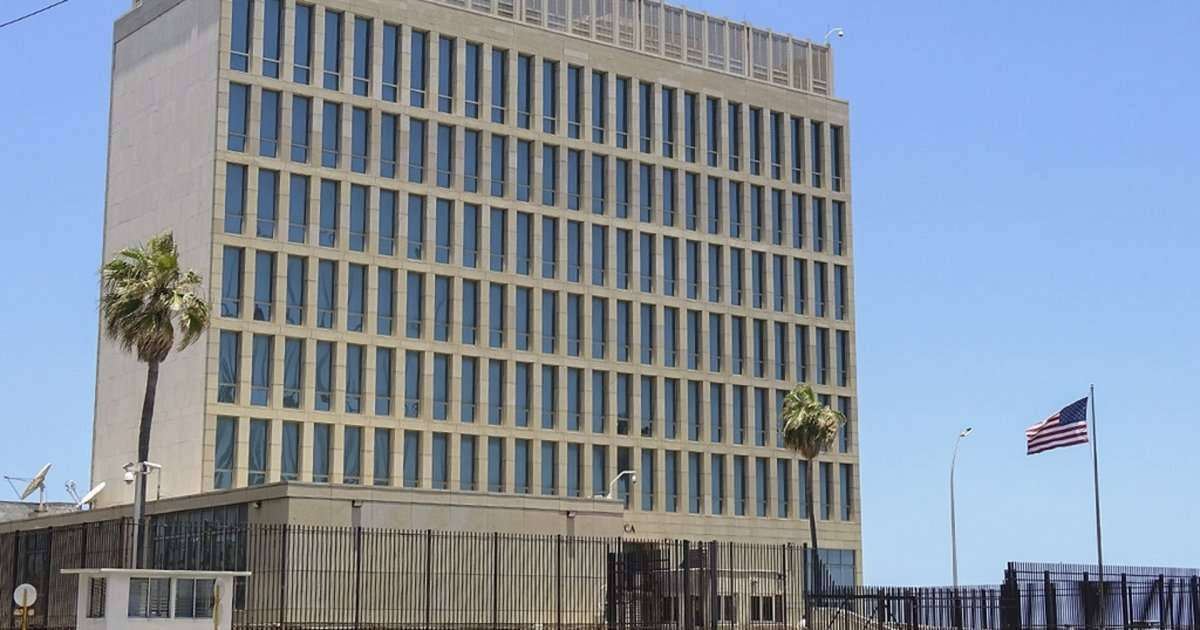
The Biden Administration assured that he fulfilled his commitment to reunify the families Cuban-American women, after completing a year of the change in its policy towards Cuba, with which he reversed a substantial part of the sanctions imposed by the former president Donald Trump and made some of the pegs more flexible embargo to the island.
“A year ago, the United States announced several political measures to empower the Cuban people. We fulfilled our commitment to reunify Cuban-American families, expand travel and resume remittances,” the undersecretary of the State Department noted on Twitter this Tuesday, Brian A. Nichols.
The official also assured that in this period his country's government has “increased support for independent Cuban companies,” in addition to announcing new measures, but without specifying details about them.
Likewise, the United States Embassy in Havana He commented on Twitter that from May 2022 to date “we have re-authorized US flights to places beyond Havana, making it easier for Americans to visit relatives who live far from the capital.”
In addition, they said that “in November 2022, flights between the US and non-Havana airports resumed” and that “starting in May 2023, there are daily direct commercial flights from Miami to Matanzas, Holguín, Santa Clara, Camagüey and Santiago de Cuba.”
“We fulfilled our promise to make it easier for authorized American travelers to contact the Cuban people, attend meetings and carry out investigations,” stressed the US diplomatic headquarters, which also maintained that this year they guaranteed that remittances “flowed more freely.” towards the Cuban people, without enriching those who perpetrate human rights abuses.”
In mid-May 2022, the administration of Joe Biden announced a package of measures with which they began to bring about a change in United States policy towards Cuba, marked by the pressures of the previous administration that once again froze relations between both countries.
They based this strategy on the argument of “empowering the Cuban people and helping them create a future free of repression and economic suffering in the midst of an unprecedented humanitarian crisis,” and at the same time it was a way to reconnect with the main objectives of the thaw policy of the Barack Obama era, in addition to fulfill what Biden promised in his election campaign.
However, this package did not address the most critical points of relations between Havana and Washington, related to Cuba's permanence on the list of countries sponsoring terrorism, the validity of the Title III of the Helms-Burton Act and cruise trips to the island.
A year ago, the Biden Administration promised to reopen and process the Cuban Family Reunification Program, arrested in 2016 and with more than 22,000 pending cases; restoration of commercial airline travel and charter flights to the Cuban provinces. At that time, passenger flights could only be made to Havana, although there were airlines authorized to carry humanitarian cargo to airports in the interior of the country.
In addition, they promised to suspend the limit of $1,000 dollars per quarter in family remittances per person and they proposed lifting the restriction without establishing a periodic cap.
They also said that they were going to increase the capacity of the consular services at the Embassy of Havana for him immigrant visa processing, a measure that finally allowed families to no longer have to go to Guyana for these procedures, although Non-Immigrant visas are still processed in third countries and there is no progress on this issue.
In that package, they promised to restore the educational and cultural connections of Americans with Cuba by expanding group travel for people-to-people contacts, suspended in 2019. Licenses will not be granted for individual person-to-person trips, in addition to allowing travel related to professional and research meetings.
Other actions were aimed at supporting the expanded Internet access and to the electronic remittance processing companies; fembrace business opportunities outside the state sector by authorizing access to expanded technology, application programming interfaces and e-commerce platforms, as well asincrease support for payment alternatives for Internet-based activities, electronic payments and business with independent Cuban entrepreneurs.
Furthermore, they proposed expanding the access of independent entrepreneurs to microfinance and training; authorize the non-family donation remittances to support independent Cuban entrepreneurs and maintain the Cuba Restricted List to government entities and linked to the military sectors.
What do you think?
COMMENTFiled in: